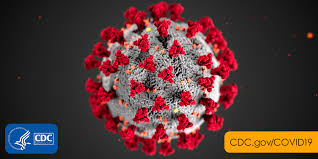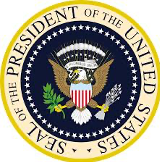|

COVID-19
Congress and the administration are responding to the COVID-19 crisis in a variety of ways. It is important in the fast-moving decision process that the various relief and safety efforts meet the needs of people with disabilities. The latest congressional COVID-19 response addressed many of those needs, but more work is needed!
Congressional Efforts:
|
Bill
|
Status
|
What it means for People with Disabilities
|
|
Coronavirus Preparedness and Response Supplemental Appropriations Act
|
Became Law on
March 6, 2020
|
The bill requires that agencies "pay back" money that was moved from programs like NIDILRR and emergency heat funding when the crisis began.
|
|
Families First Coronavirus
Response Act
|
Became law on March 19, 2020
|
Free coronavirus testing for everyone who needs a test, including the uninsured. Increased paid leave. Enhanced Unemployment Insurance to people unable to work. Increased funding for food security programs.
|
|
Coronavirus Aid, Relief, and Economic Security Act (or CARES Act)
|
Became law on March 27, 2020
|
- Allows state Medicaid programs to pay for direct support professionals to assist disabled individuals in the hospital
- $13.5 billion available for formula grants to States, which will then distribute 90 percent of funds to local educational agencies to meet needs of all students, including students with disabilities
- $85 million for Centers for Independent Living
- $50 million for Aging and Disability Resource Centers
- Extension of Money Follows the Person and Spousal Impoverishment through November 30, 2020
- Waives nutrition requirements for Older Americans Act (OAA) meal programs during the public health emergency related to COVID-19 to ensure seniors can get meals in case certain food options are not available
|
|
Paycheck Protection Program and Heath Care Enhancement Act
|
Became law on April 24, 2020
|
- $321 billion to refill the CARES Act's Paycheck Protection Program (PPP)
- $60 billion in economic disaster loans for small businesses
- $75 billion to help hospitals treat COVID-19 patients and address drops in revenue
- $25 billion for states to increase testing capabilities
|
|
Package 4
|
Congress has begun work
|
Your voices are needed to make sure the needs of people with disabilities are addressed!
|
What happened last week:
- Congress passed the Paycheck Protection Program and Health Care Enhancement Act -- or "Package 3.5" -- to address assistance to small businesses and health systems. They continue to work on a larger Package 4 to meet the growing needs of Americans.
Plain Language:
- Congress is working on bills to support people during COVID-19. They need to hear from you about the needs of people with disabilities.
What this means to you:
- More than 105 million Americans - or about 4 in 10 adults - are at heightened risk if infected with the novel coronavirus (COVID-19), including older adults, people with disabilities and those with underlying health conditions. The front-line workers and family caregivers who support these individuals also face increased risks, requiring additional resources and supports to protect their health and well-being.
Action steps:

Administrative Action
The Executive branch is using its powers to respond to the growing impacts on people and the economy during COVID-19. Many of these policy changes do not require Congressional approval.
- Centers for Medicare and Medicare Services announced a new nursing home COVID-19 transparency effort that would require nursing homes to give notice to residents and their families when there is a COVID-19 case, report that information to CDC as well as state and local authorities, and cooperate with CDC efforts to contain the spread.
- On April 20th, the Treasury Department announced an April 22nd deadline for Title II Social Security (OASDI) beneficiaries who had not filed 2018 or 2019 tax returns and who have dependent children to use the non-filers web tool to inform the IRS of their children. Those who missed the deadline might not receive the $500 economic incentive payments for children until spring 2021.
- The U.S. Secretary of Agriculture announced emergency benefit increases have reached $2.0 billion per month for Supplemental Nutrition Assistance Program (SNAP) households across all 50 states and three territories to increase food security during the coronavirus national emergency. These emergency benefits represent a 40% increase in overall monthly SNAP benefits, significantly increasing food purchasing power for American families.

Congressional Action
Congressional leaders are using various strategies to respond to the needs of people during COVID-19. This includes letters to federal agencies and congressional leadership requesting clarification, guidance, and public statements for the record that the needs of people with disabilities are included in Package 4. These include:
AUCD Policy Talk
"We have a caregiver crisis, particularly among 'Direct Care Workers.' COVID-19 will make this crisis worse. We need to do something about it, and now is the time." - Sara Bitter, trainee graduate from the UC UCEDD. Read the full blog post here.
Action Steps:
 Love Policy? We do too! Love Policy? We do too!
Check out AUCD's new policy resource, a one-page fact sheet to help explain AUCD's policy efforts, and engage with us today!

Tuesdays With Liz
COVID-19 with the CDC's Georgina Peacock
The Coronavirus is scary and confusing for everyone, but there are precautions we can take to stay safe. Liz asks some questions about COVID-19 to the Centers for Disease Control and Prevention's (CDC) Director of the Division of Human Development and Disability, Dr. Georgina Peacock.
https://www.youtube.com/watch?v=FPHQ3qzZJFs&feature=youtu.be
|
